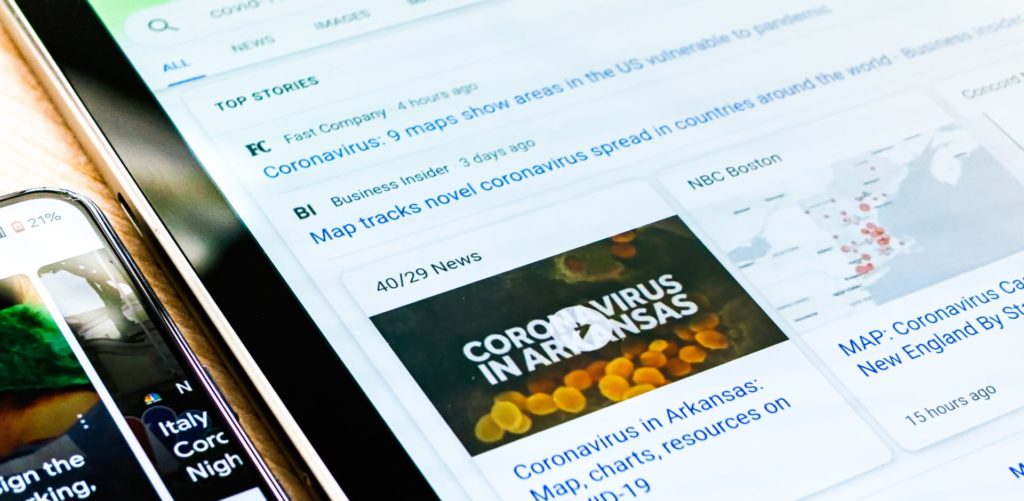Can PPC Affect SEO? How Paid Search Can Boost Your Organic Performance
It’s impossible to avoid using the internet when you’re on the lookout for a new service – or to find someone who can provide said service for you. And just about all of us turn to search to help us find what we’re looking for. Pay-per-click advertising, or PPC, is one of the most tried-and-true methods of generating traffic for your business, but organic search plays just as big a role. So how does PPC affect SEO, if at all?
We’ll break it down here for you more in-depth, but the short answer is that PPC affects SEO – but not directly. The gist of PPC best practices is this: When a potential customer clicks on a PPC ad, they’re redirected to one of your landing pages. If set up correctly, these aren’t crawled by search engines, so you don’t have to worry about duplicate content. (You could technically point your ads at your own website – we don’t recommend it – but this wouldn’t be considered organic traffic.) But when you’re aiming for an effective SEO strategy, you’re trying to create unique content that will perform well in the search engine rankings, because these pages ARE part of your website.
Make sense? Read a bit further, and we’ll explain how these strategies are distinct but manage to go hand-in-hand to help engineer an effective web presence for your business.

Two Sides of the Same Coin
When you run PPC campaigns, your ads appear at the top of search engine result pages. These are separate from the organic search results below, which Google ranks according to its complex algorithm.
But although PPC and SEO aren’t directly linked, they can help each other. When you maximize your PPC campaign, you can end up boosting your business’ organic search results as well. How?
Increase Exposure With PPC & SEO Together
When your business shows up at the top of a search results page thanks to your PPC campaign, a prospective customer immediately sees the name and associates it with what they’re searching for. Now, although they may not click on it right then – perhaps they realize that you’ve paid to put that result there, or they’re curious to see other options – they might see it again.
If your business is included in the organic search results on the same page, then a switch flips in the searcher’s head. They’ve suddenly seen your business twice, and whether consciously or subconsciously, they’re more aware of you.
If you have PPC ads, map listings, and organic results showing up for your keywords, then you are dominating the search results, which will have a collective effect. When you use all the internet marketing tools at your disposal, you can create a very strong and professional brand presence that eclipses the competition, especially if there are 2-4 mentions of your company in the search results.
Customers who recognize your company in the paid ad section will be more likely to click on your ad over a competitor’s. Extended PPC campaigns increase direct brand searches, which is the best type of web traffic. The perceived value of your brand increases when you dominate the PPC and SEO portions (including map listings, on-site and off-site SEO) of the SERP.
PPC Drives Traffic
Even if your PPC campaign doesn’t influence searchers to visit your website just by virtue of subliminal messaging, a strong PPC presence can inadvertently boost your organic search placement anyway. If your campaign is successful, an increase in traffic = more customers. Customers could share your business through social media or other avenues, which increases brand awareness and drives traffic through other means.
Increased traffic and exposure are a few of the many methods that Google’s algorithm decides what to rank where, and this can give you better placement in organic search results as a byproduct!
Overlapping Keywords
Normally, the keywords you’d hone in on for PPC campaigns would stand in stark contrast to the ones you’d focus on for optimal SEO placement. But thanks to the rise in voice search, those lines have begun to blur. With the increase in longer keyword tails (which happens when people dictate their searches to a device rather than typing them out), you can receive PPC and SEO traffic through the same results.
The increasingly diversifying field of search-engine placement might seem like it’s doing its best to drive a wedge between PPC and SEO, and you might get discouraged as a result. But that’s simply not the case. Now, more than ever, PPC and SEO complement each other, and mastering one will help you gain footing in the other – and vice-versa.
Final Thoughts
Can PPC hurt your SEO? Well, we’re sure there’s probably someone out there who has achieved this feat, but we just can’t think of how it can be done. Especially if your campaign manager is following the basic paid search best practices.
Can PPC help your SEO? Absolutely, if you do your digital marketing correctly! SEO is a long-term strategy that requires a lot of time and effort; PPC campaigns can produce a lot of good leads and exposure right away. You should be doing both.
With VitalStorm’s help, your business will be able to carve out a unique and distinct space in the digital marketing landscape. Whether through PPC campaigns, uniquely tailored organic research strategies, or a custom-made website and social media presence, our talented team can help you take the next step.
Give VitalStorm a call at 1-877-311-5695 to schedule a 15-minute call!

